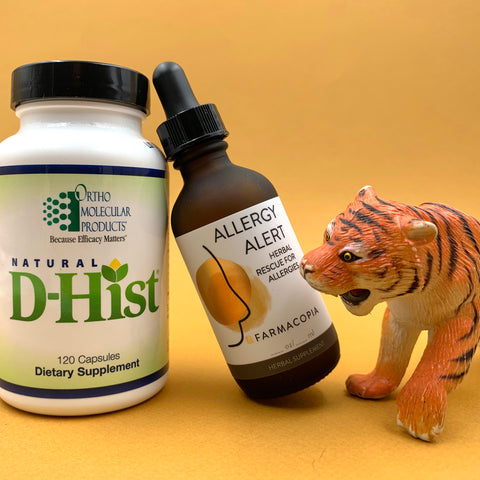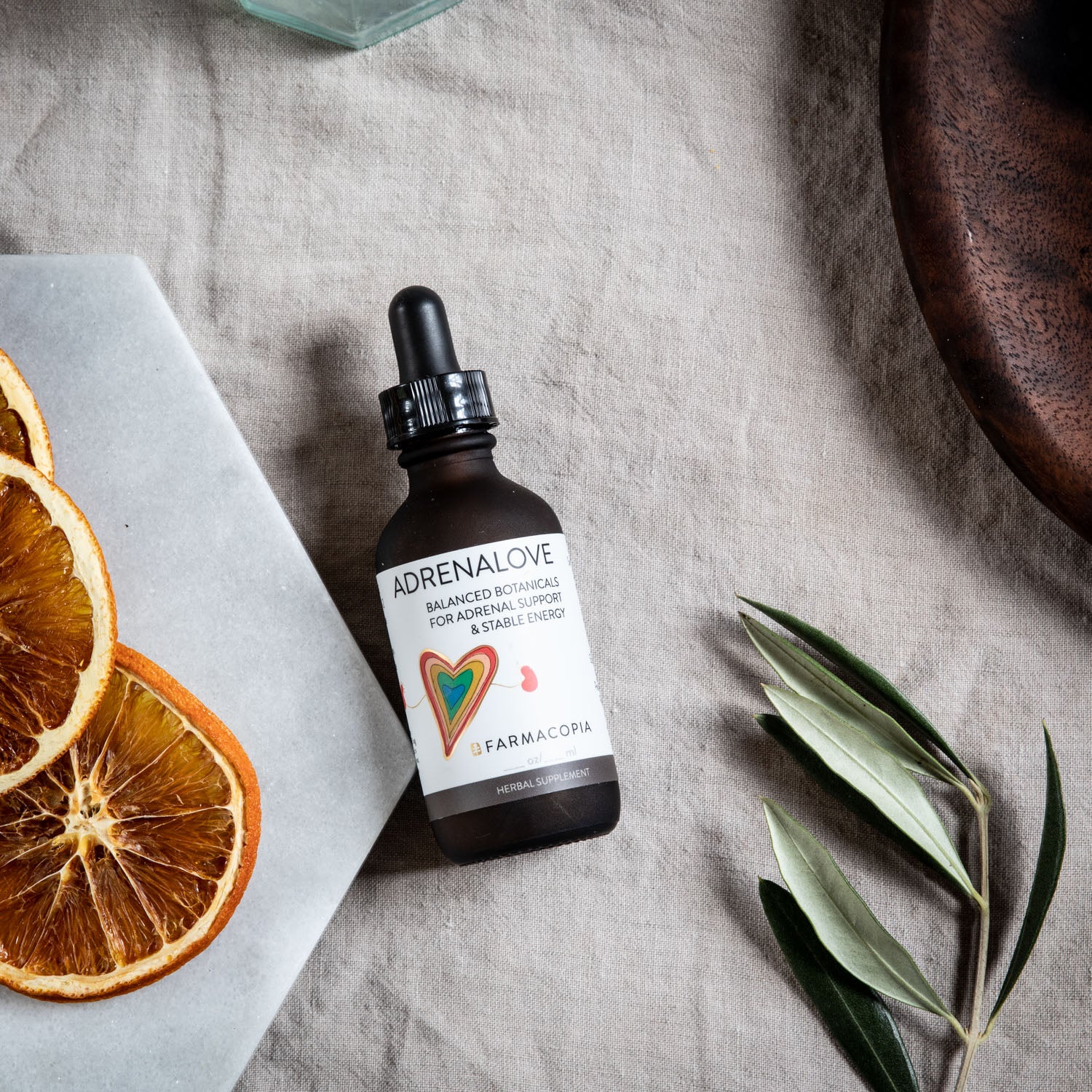 Author: Lily Mazzarella
Author: Lily Mazzarella
Spring brings many gifts: lengthening daylight, forest-floor flowers, and increased energy & inspiration as we observe the earth’s cycle of renewal.
This is, however, for many a dreaded time of year: spring’s volatile weather and wind form the perfect storm with a proliferation of tree, grass, and wildflower pollen. My clients with misery-inducing allergies are hard-pressed to appreciate daffodils and budding trees through streaming, itchy red eyes, drippy swollen sinuses, lethargy and brain fog. To these sufferers I recommend a program of immune balancing and strengthening with herbs and nutrients that begins in the winter, as well as a Spring Cleanse.
Liver & Allergies?
The liver is a great mediator of inflammation in the body, and when it is “hot” and working overtime metabolizing our stress hormones, medications, alcohol, and processed foods, allergies can flare. Of course, the health-conscious and clean-living among us also have allergies. Many factors affect allergic propensity, including genetics (some people are prone to making more IgE antibodies, which mediate the allergic response), gut flora (C-section babies may be at greater risk for atopic diseases like allergy, asthma, and eczema), environmental pollutants, and nutrient deficiencies such as vitamin D and zinc.
The liver also filters all the blood coming off our digestive tracts; if your gut barrier is “leaky” or inappropriately permeable due to stress, medications, or food sensitivities, large proteins and bits of bacterial cell walls can flood the portal circulation, and overwhelm the liver’s detox capacities, allowing for inappropriate material out in general circulation, where it can trigger the immune system and cause reactivity throughout the body–including in our blood vessels, and the skin.
Taking it down a notch
I have seen again and again that when my clients reduce their baseline reactivity by cleaning up their diets, increasing hydration, and supporting the liver in its detox duties, that allergy symptoms they thought they were stuck with diminish, sometimes drastically.
Here are some tips to make your Spring (hay) fever less dreadful:
- Observe the trees’ daily rhythm: trees tend to release more pollen in the early evening, so avoid outdoor activities like gardening and jogging at this time.
- Wash that pollen right out of your hair: that’s right, rinse it away! Pollen accumulates in your hair. Don’t go to bed with it, or you could wake in the wee hours in the throes of an allergy attack. Either shower after you get home from work, or in drought-stricken California, wipe your head and hair down with a damp washcloth.
- The bedroom is sacred: Change your pillow cases a few times a week, and invest in a HEPA filter for the room you spend the most time in.
- Avoid the 3 usual suspects: during your allergy challenge season, cut out dairy (which can be mucus forming), and reduce or eliminate sugar and wheat. I’ve seen these dietary changes alone get people off their allergy meds!
- Hose your nose: Stop pollens from adhering to your mucus membranes by using a neti pot or “NeilMed” sinus irrigator, followed by a Nasya, or sinus oil (We like this nasal oil from Baraka with organic sesame oil, chamomile, cardamom & everlast). If you find the neti pot irritating, or you’re too congested for it to work, try FastBlock Allergy Relief, a fine cellulose powder that coats allergy receptors in the nasal passages for allergy relief OR Xlear, a soothing xylitol and saline nasal spray. While you’re at it, rinse irritants from your eyes with Similisan’s Allergy Eye Relief.
- Spring clean your liver: Reduce liver irritants like fried foods, sugar, and alcohol (especially beer and wine, which tend to provoke more histamine response). Focus on liver supportive foods and herbs such as milk thistle, turmeric, artichoke, and dandelion. For some delicious, cleansing recipes download our latest Happy Liver Detox guide.
- Eat your veggies!: Quercitin, a flavonoid which helps to stabilize our mast cells (essentially little balloons filled with inflammation instigators like histamine, just waiting to pop) is ubiquitous in the plant world. Onions and apples are particularly quercitin-rich. Plant sterols, another common compound, help to tip our immune response away from hyperactivity. Both quercitin and plant sterols are available as supplements, but always focus on diet first.
- Nourish, nourish, nourish: Deficiencies in magnesium, vitamin D, C, zinc, pantothenic acid (B5), and omega-3 fatty acids can all contribute to worsened allergies. If your allergies are severe, you may want to consider supplementation with these nutrients for 2-3 months leading up to allergy season, and during.
- Acute support: I like Orthomolecular’s D-Hist (not available online but call the shop to order), a combination of nettles, quercitin, bromelain and N-acetyl-cysteine, along with extra vitamin C and our Allergy Alert tincture. For those who can’t or won’t take allergy meds, these are lifesavers!
If you’re looking for more personalized relief, call any of our Farmacopia practitioners to schedule an in depth consultation.

